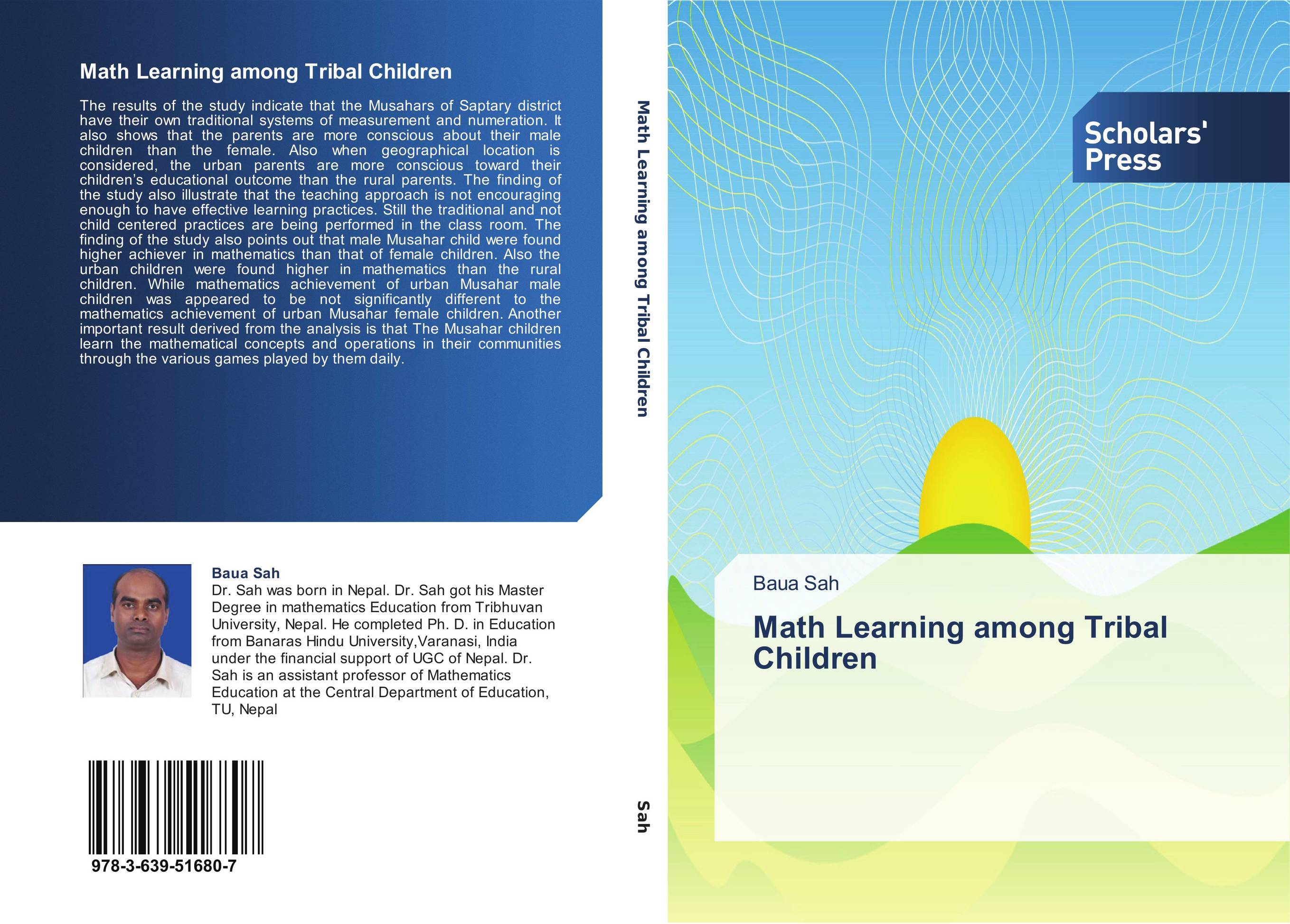| Поиск по каталогу |
|
(строгое соответствие)
|
- Профессиональная
- Научно-популярная
- Художественная
- Публицистика
- Детская
- Искусство
- Хобби, семья, дом
- Спорт
- Путеводители
- Блокноты, тетради, открытки
Math Learning among Tribal Children.

В наличии
| Местонахождение: Алматы | Состояние экземпляра: новый |

Бумажная
версия
версия
Автор: Baua Sah
ISBN: 9783639516807
Год издания: 2013
Формат книги: 60×90/16 (145×215 мм)
Количество страниц: 184
Издательство: Scholars' Press
Цена: 46972 тг
Положить в корзину
| Способы доставки в город Алматы * комплектация (срок до отгрузки) не более 2 рабочих дней |
| Самовывоз из города Алматы (пункты самовывоза партнёра CDEK) |
| Курьерская доставка CDEK из города Москва |
| Доставка Почтой России из города Москва |
Аннотация: The results of the study indicate that the Musahars of Saptary district have their own traditional systems of measurement and numeration. It also shows that the parents are more conscious about their male children than the female. Also when geographical location is considered, the urban parents are more conscious toward their children’s educational outcome than the rural parents. The finding of the study also illustrate that the teaching approach is not encouraging enough to have effective learning practices. Still the traditional and not child centered practices are being performed in the class room. The finding of the study also points out that male Musahar child were found higher achiever in mathematics than that of female children. Also the urban children were found higher in mathematics than the rural children. While mathematics achievement of urban Musahar male children was appeared to be not significantly different to the mathematics achievement of urban Musahar female children. Another important result derived from the analysis is that The Musahar children learn the mathematical concepts and operations in their communities through the various games played by them daily.
Ключевые слова: Heritage, ZPD, socio-cultural, Scaffolding, Mathematize, offspring, siblings, Cultural system, Eco-cultural



